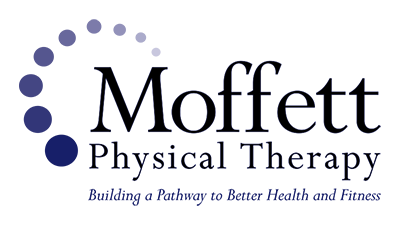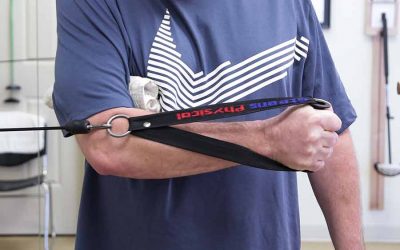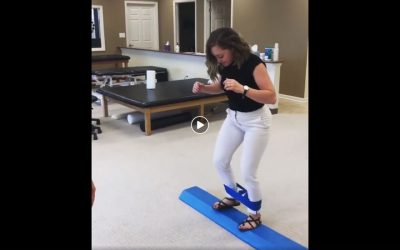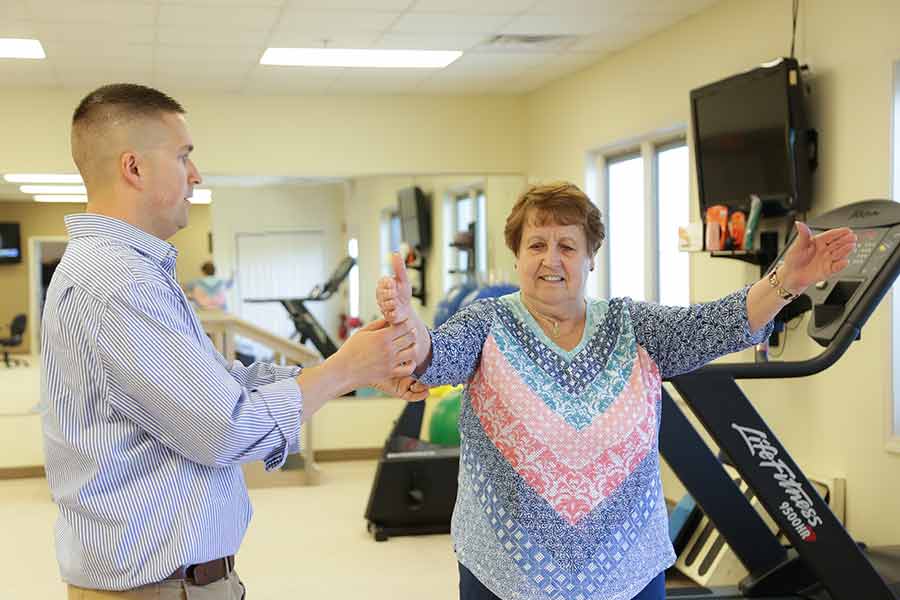
Balance / Vestibular Rehabilitation / Concussion
Balance and Fall Prevention
Physical therapy can provide valuable education and treatment options for fall prevention and improvements in balance and coordination. We utilize the latest standardized tests and measurements found in medical literature to test for fall risk and to assist with designing individualized treatment plans. Physical therapists can also prescribe and fit an assistive device such as a cane or walker when indicated. The goal of therapy is to return the individual to the highest level of function and independence as quickly and safely as possible.
Dizziness
Dizziness can occur from a variety of conditions and becomes more common as we age. Some of these conditions such as BPPV, Meniers’s disease flare-ups, vertigo, migraines, and vestibular hypofunction can be treated with physical therapy. Often cases of BPPV, which is the most common cause of dizziness, can be reduced or eliminated in 1 to 3 physical therapy visits. Depending on the cause of the dizziness, treatment may vary per individual. Physical therapy may include fall prevention, balance and proprioceptive exercises, coordination activities, positioning techniques, gait training, and assistive device prescription.
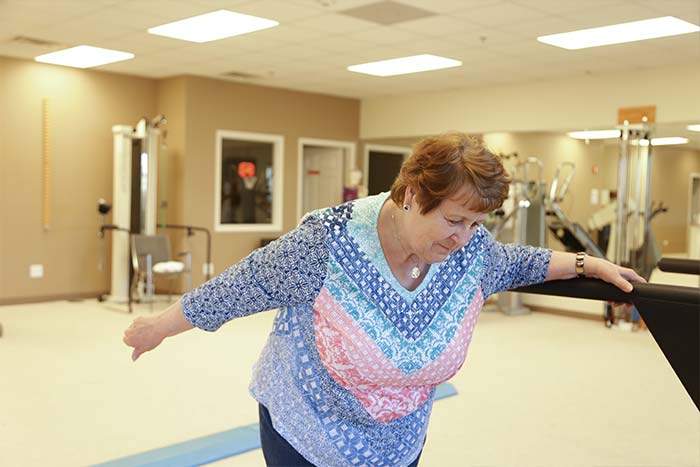
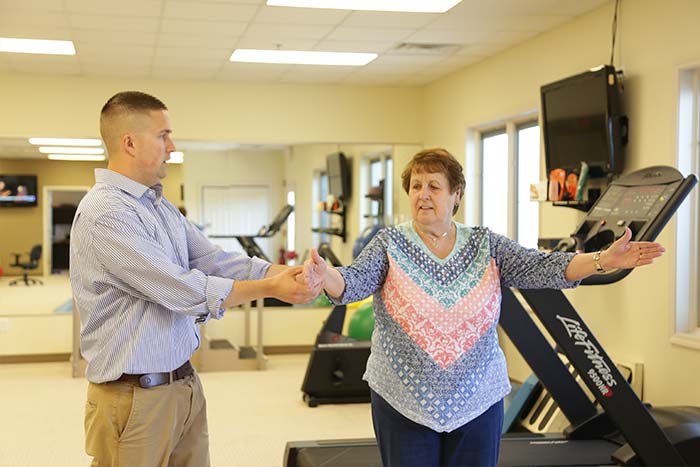
Neuropathy
Neuropathy is a disorder of the nervous system which effects the nerves after they leave the spinal cord. Peripheral neuropathy typically effects the hands and feet due to nerve degeneration. There are more than one hundred types of neuropathy and symptoms can vary from individual to individual. Some common symptoms are: numbness, tingling, burning, weakness, pain, muscle wasting, excessive sweating, and hypersensitivity to touch. Neuropathies can also progress to paralysis. Physical therapy can help reduce the impact of neuropathy. Treatments can include: modalities, desensitization techniques, strengthening and flexibility exercises, orthotic fabrication (shoe inserts)/prosthetic recommendations, gait training, balance and proprioceptive exercises, assistive device prescription, and fall prevention.
Vestibular Rehabilitation
Vestibular rehabilitation encompasses a variety of conditions that can effect a person’s balance and coordination. Some of the conditions treated are BPPV, migraines, Meniere’s disease flare-ups, vestibular hypofunction, and vertigo. Physical therapy examination provides a battery of tests and measurements to determine the best treatment options for the individual. Often in cases of BPPV, dizziness can be significantly reduced or eliminated in 1 to 3 visits. Vestibular rehabilitation also encompasses fall prevention, balance and proprioceptive exercises, coordination activities, positioning techniques, gait training, and assistive device prescription. An individual may also receive other services such as strengthening and flexibility exercises, depending on his or her individualized needs.
Related Blog Posts
How Physical Therapy Can Help Long Covid-19
What is Long Covid-19 Roughly 385 million cases of Covid-19 have been reported globally since the start of the pandemic 2 years ago, and about 25% of people who contracted Covid-19 have lingering symptoms that last anywhere from 1 to 12 months after initially...
Hip pain exercise
Improve Hip Strength, Balance, and Core
https://www.facebook.com/MoffettPT/videos/1110766505728010/
Contact us today to get started.
Hours
Monday - Thursday 7:00 am - 8:00 pm
Friday 7:00 am - 3:00 pm
Closed Saturday and Sunday
(847) 659-1000
